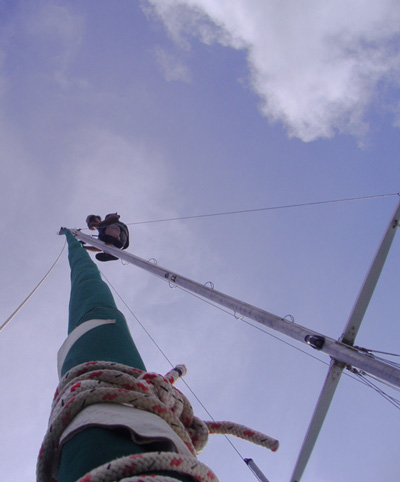In the "hardly surprising" department, this really says a lot, and some needful reading...
I was recently looking at the study plans for one of Reuel Parker's boats, a scow as it happens, and there was a comment by Reuel that got me thinking...
"Scows are not considered seaworthy types, although they can make coastal trips and island passages."
The thing about seaworthiness is it's a pretty fluid concept at best and, in most cases, something of a gray area being dependant on many factors. Which means that one person's seaworthy vessel may seem like a floating death trap to another. Having crossed seas with an internally ballasted shoal draft sharpie that drew eighteen inches, I used to have this pointed out to me on a regular basis...
That said, scows of the traditional sort are not seaworthy in the same sense as a keel boat with external ballast. For starters internal ballast is not very good at righting a fully capsized hull and if that's going to be your main criteria of seaworthiness a scow may actually seem somewhat lacking...
Just like a modern catamaran.
Seriously, if you applied the same thought process that makes a scow unseaworthy to just about any production cat currently being built today you'd have to come to the same conclusion... Catamarans are unseaworthy.
You might want to think about that for a moment or two...
Which does not mean that I think all modern production catamarans are unseaworthy (just some) or that a traditional scow is either. Just that they are both different in ways you should be aware of.
Like I said before, seaworthiness is a pretty slippery notion and depends much more on the person sailing a boat rather than the actual design. Sailing a traditional scow has a lot more in common with sailing a catamaran than it does with an externally ballasted monohull...
So, would I consider sailing Reuel Parker's scow across an ocean?
Sure I would. Then again, before I did I'd sail it a lot, practice deploying a parachute sea anchor/heavy weather tactics, and sort out the best way to hove to with the board up because I'm not real keen on surprises further offshore than I care to swim towards land. Of course, anybody considering a trans-oceanic passage would do the same no matter what sort of boat they intended to cross with..
Right?
Listening to She & Him
So it goes...









